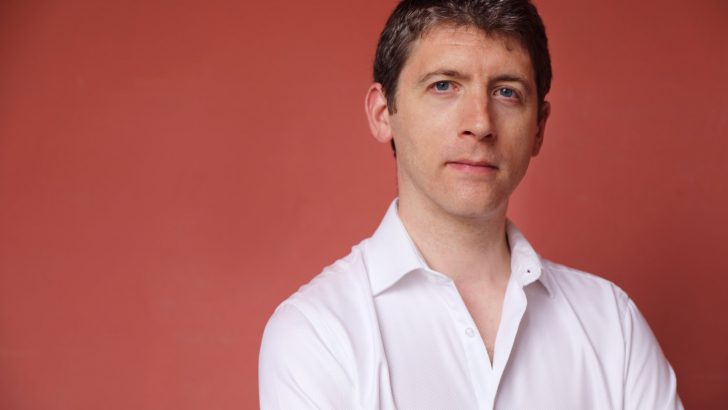While Covid-19 continues to cast doubts over live music performances, some promoters are battling on. One such has a three-week tour of the country by piano supremo, Finghin Collins, currently in hand. Mr Collins actually began his serpentine journeying on November 13 at Tullynally Castle in Co. Westmeath overlooking Lough Derravaragh, the legendary lake of the Children of Lir.
This evening – November 25 – finds him in Limerick’s Belltable; tomorrow 26 at Ballina Arts Centre; Saturday 27 in Sligo’s Methodist Church; Sunday 28 in Letterkenny’s An Grianán and Tuesday 30 in Roscommon’s Arts Centre.
The last leg of this meandering zigzag marathon brings Finghin Collins to the Pavilion Theatre in Dún Laoghaire on Wednesday December 1; Thursday 2 at Glór in Ennis; Friday 3 at the Source in Thurles and Saturday 4 at the Triskel in Cork. The tour concludes in St Brendan’s Church, Bantry on Sunday December 5.
Bach
The main stays of Mr Collins’ programmes are Bach’s English Suite No 3 BWV 808 written, according to the composer, “for music lovers to refresh their spirits”; Chopin’s Scherzo No 2, one of his best loved works; Liszt’s Harmonies du Soir, the penultimate in his twelve Transcendental Études with a wonderful sound palette depicting eventide. Schubert’s physically and mentally challenging Wanderer Fantasy D 760 is the jewel in this pianistic crown.
Dating from November 1822, when the composer was enduring one of his several emotional crises, the grandiose quasi-orchestral textures of the work meant its continuous four-movement construction having a deep significance for a number of other composers, not least Liszt, Wagner, César Franck and Richard Strauss.
For its principal idea Schubert returned to one of his songs – Der Wanderer D 489 – written in 1816 although the connection only becomes plainly obvious in the Fantasy’s Adagio where the original lied is quoted in the same tempo and mood. The poet was a lesser-known figure, Georg Philipp Schmidt von Lübeck, a medical doctor by profession.
Fantasy
Schubert wrote the fantasy for a “courteous, wealthy gentleman” – the distinguished pianist of the day, Emmanuel Karl Edler von Liebenberg. Said to be a “celebration of energy and virtuosity”, the piece ends with an elaborate fugue that stretched Schubert’s own piano technique beyond its limits. Playing it on one occasion, he is reputed to have jumped up from the keyboard shrieking, “let the devil play it”! Without doubt Finghin Collins will take it all in his masterly stride.
As well as these pillars of the repertoire, Mr Collins sprinkles his programmes with shorter pieces by Elaine Agnew, Bartók, Amy Beach, Debussy, Clara and Robert Schumann and Eric Sweeney.
Thanks to Music for Galway, visiting Navarra Quartet plays Bartók and Dvorák in the city’s St Joseph’s Church tonight, November 25, while events over the coming weekend has the Fidelio Trio’s Winter Festival offering Piano Trios by Korngold and Saint-Saëns among a panoply of other delights in Belvedere House and DCU’s Drumcondra complex on Saturday evening and Sunday afternoon, November 27 and 28. The Dublin International Chamber Music Festival has Music for Friends in the Chapel Royal on Sunday evening.



